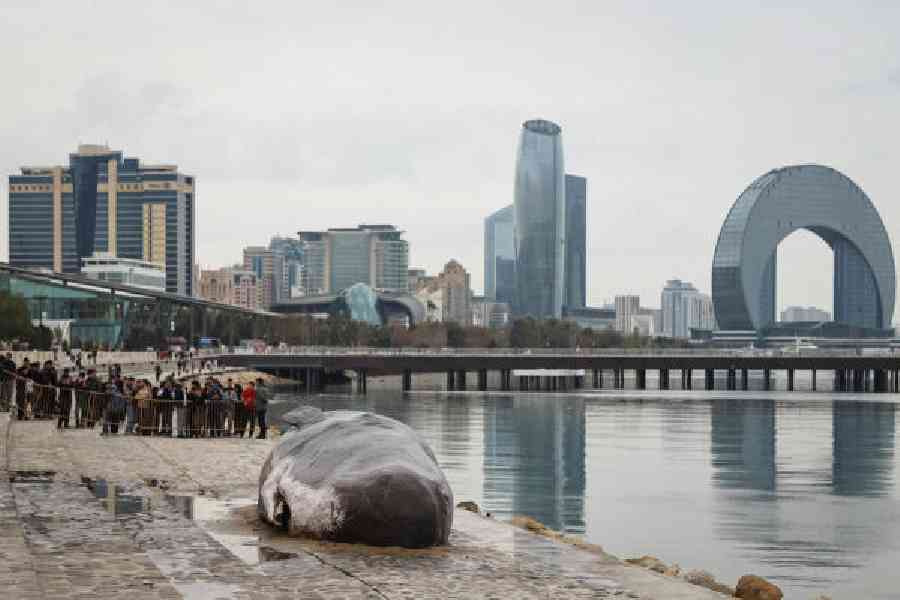The global climate meet, COP29, began in Baku on Monday with a key UN official calling for a discussion on a new finance deal at a time when Donald Trump’s presidential victory has fuelled apprehensions that climate finance talks might be thrown off track.
“We mustn’t let 1.5°C (rise compared to pre-industrial benchmark) slip out of reach. And even as temperatures rise, the implementation of our agreements must claw them back,” said Simon Stiell, secretary-general of the United Nations Framework Convention on Climate Change (UNFCC), in his opening remarks at the inaugural plenary session at the Baku Olympic stadium, Azerbaijan.
Several studies show that a temperature rise over 1.5°C may significantly jeopardise the vulnerable populations in the world, including India where places such as the Sunderbans may witness severe disaster following a significant rise in sea levels.
However, Stiell’s effort to bring back momentum in finance talks met early resistance as several developed countries demanded the UAE dialogue to cover all aspects while developing countries pointed out that the talks should only cover the finance part of the dialogue.
The UAE dialogue is linked to the Global Stocktake outcomes of countries and is a platform to track their progress in terms of mitigating emissions in keeping with the Paris Agreement that mandates to keep the global temperature rise within 2°C, preferably within 1.5°C.
The conflict stalled the 11am plenary meeting till late noon in Baku.
“The discussion has got stuck on UAE dialogue,” Sanjay Vashist, director of frontline civil society platform Climate Action Network South Asia (CANSA), told The Telegraph.
Harjeet Singh, another key climate expert, alleged that some of the developed countries had been trying to muddy the water to push back the finance talks. Experts pointed out that there were also disagreements on Article 6 of the Paris Agreement which sets out the principles for carbon markets. Stiell wanted to counter this delay in the talks on climate finance at the outset of the plenary.
“We must agree to a new global climate finance goal… Show determination and ingenuity here at COP29... We need all parties to push for agreement right from the start... To stand and deliver,” Stiell said at the beginning of the summit.
The Baku climate meet is positioned as a finance-driven one with a rising demand for financial support from developed to developing countries — from the current $100 billion every year to trillions. Political leaders are set to discuss and finalise the agreed volume of the New Collective Quantified Goal on finance.
“If at least two-thirds of the world’s nations cannot afford to cut emissions quickly, then every nation pays a brutal price. If nations can’t build resilience into supply chains, the entire global economy will be brought to its knees. No country is immune. So, let’s dispense with any idea that climate finance is charity,” Stiell said.
He added that “an ambitious new climate finance goal is entirely in the self-interest of every nation, including the largest and wealthiest”.
Pointing out the priorities in various financial sectors, Stiell said: “Here in Baku, we must get international carbon markets up and running, by finalising Article 6. We need to move forward on mitigation, so targets from Dubai are realised. We must agree on adaptation indicators. You can’t manage what you don’t measure… and we must continue to improve the new mechanisms for financial and technical support on loss and damage.”
“Clean energy and infrastructure investment will reach $2 trillion in 2024, almost twice that of fossil fuels,” Steil said as a silver lining to an address laden with perceived climate-finance challenges.
He also presented an outline of the UN’s future climate action plan. “Next year, all countries will deliver their third generation of national climate plans… (and) to support countries in creating and communicating them, the UNFCCC will launch a Climate Plan Campaign.”











